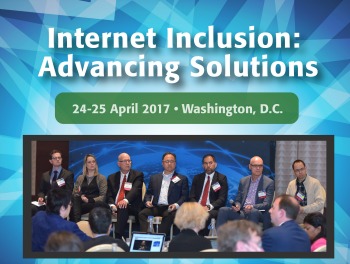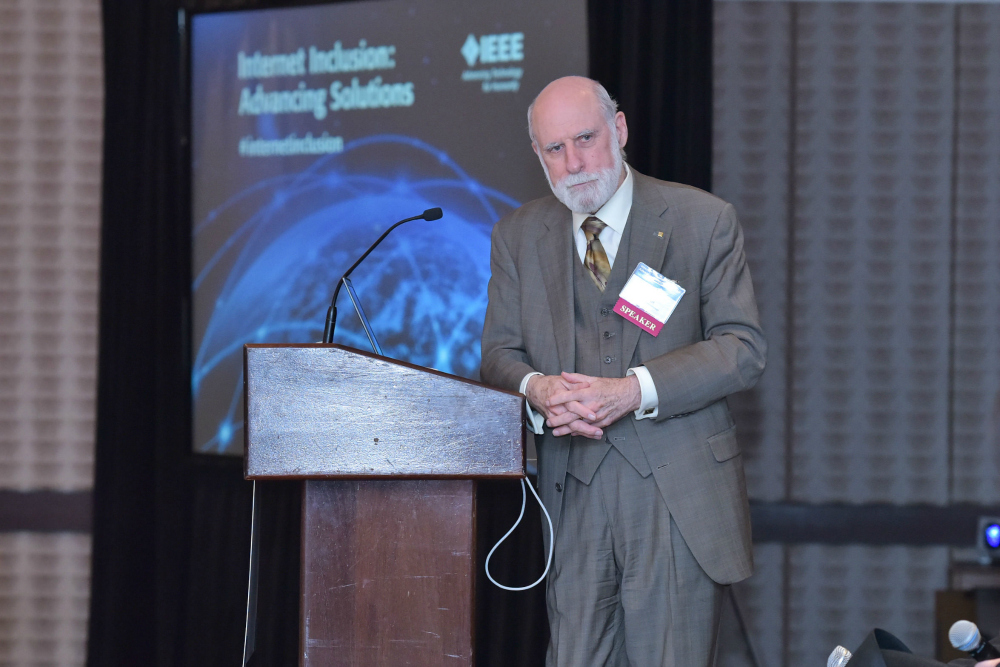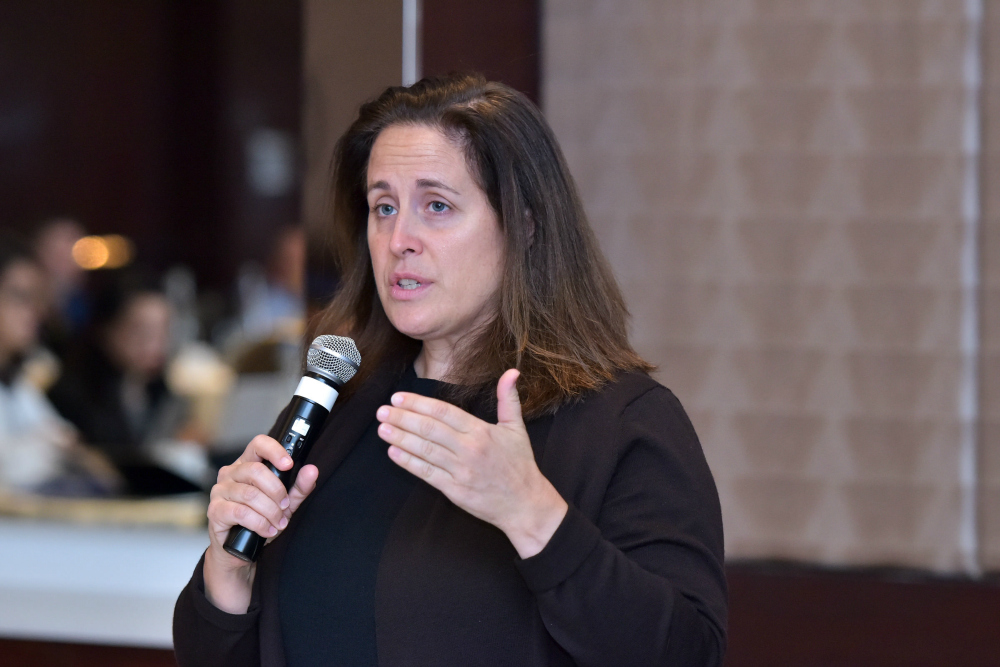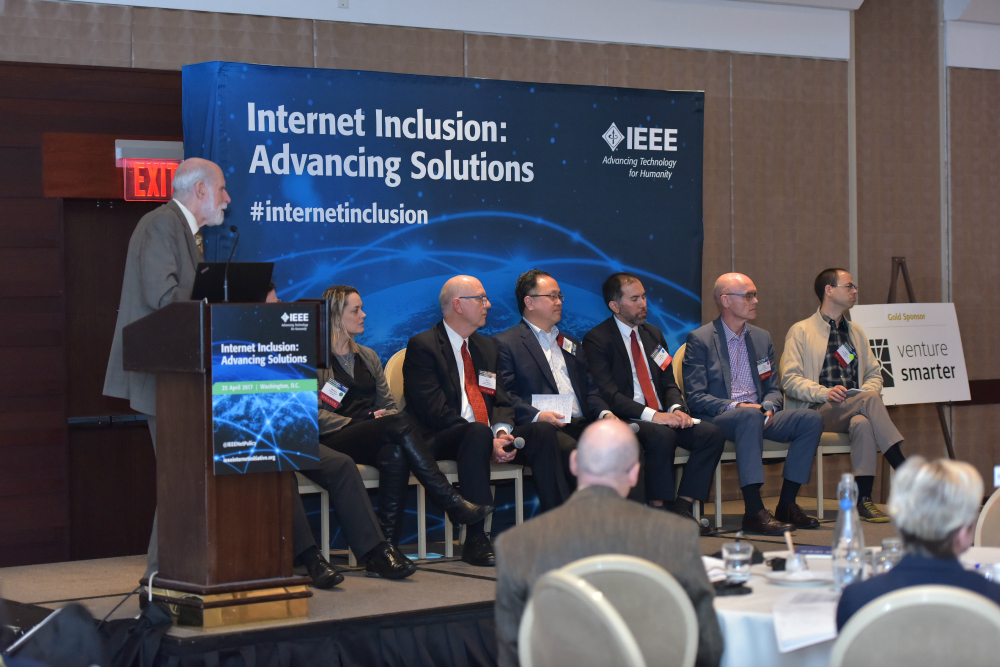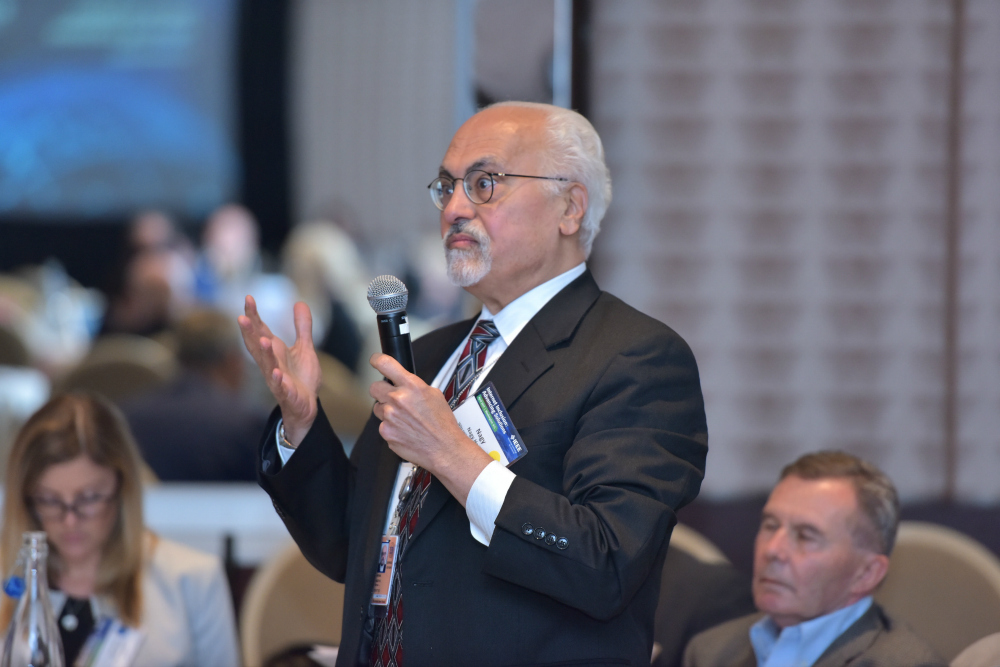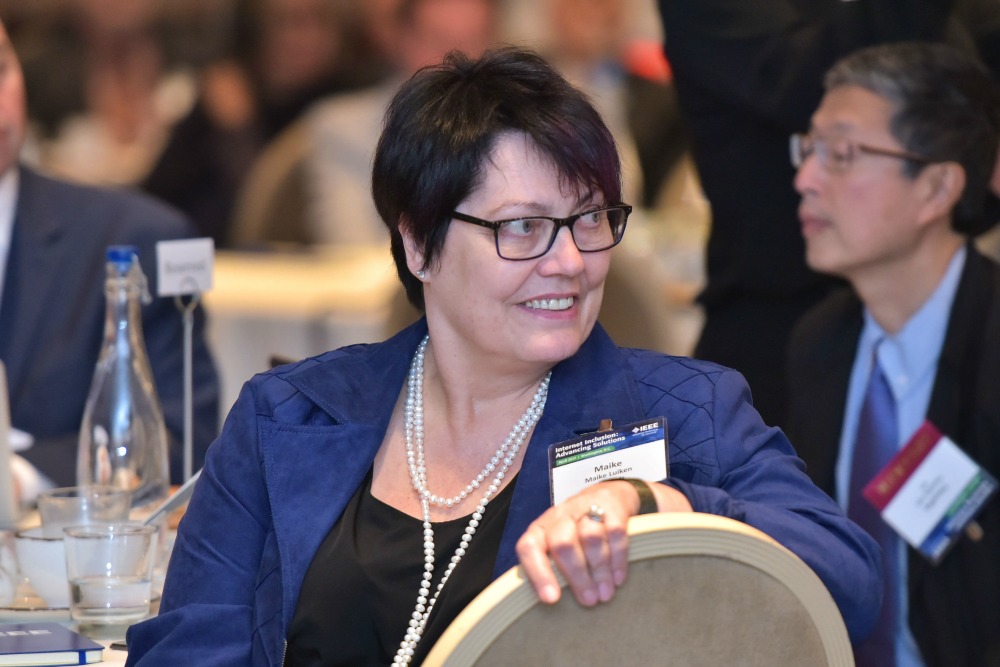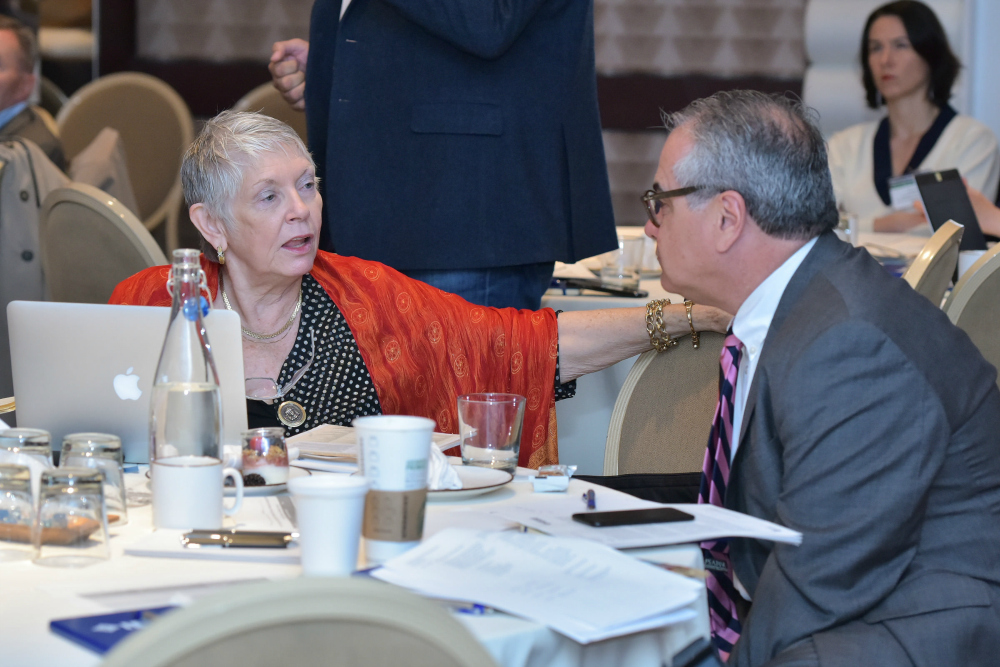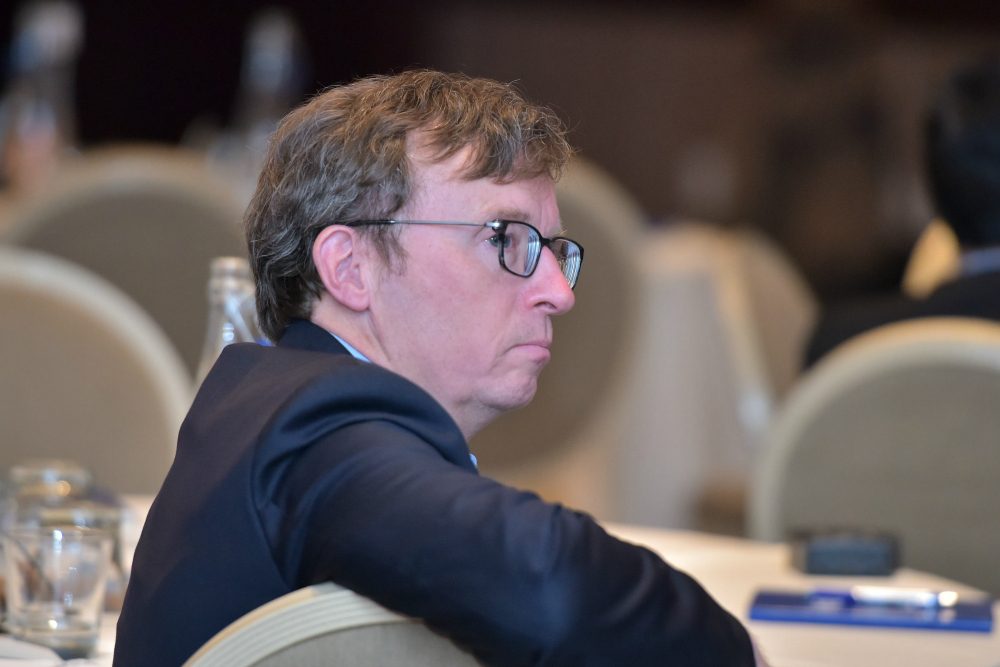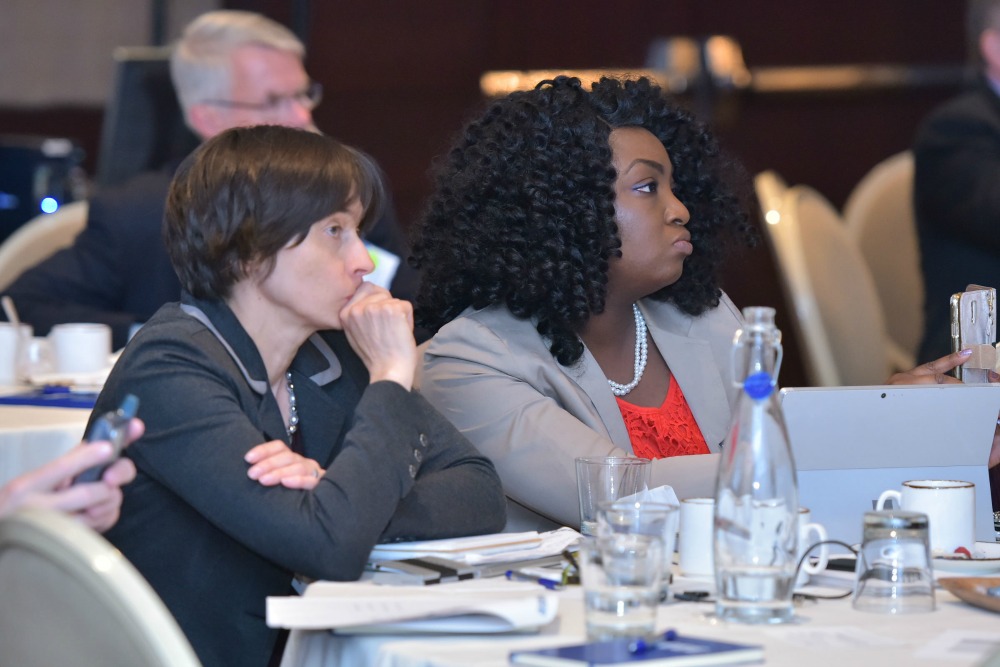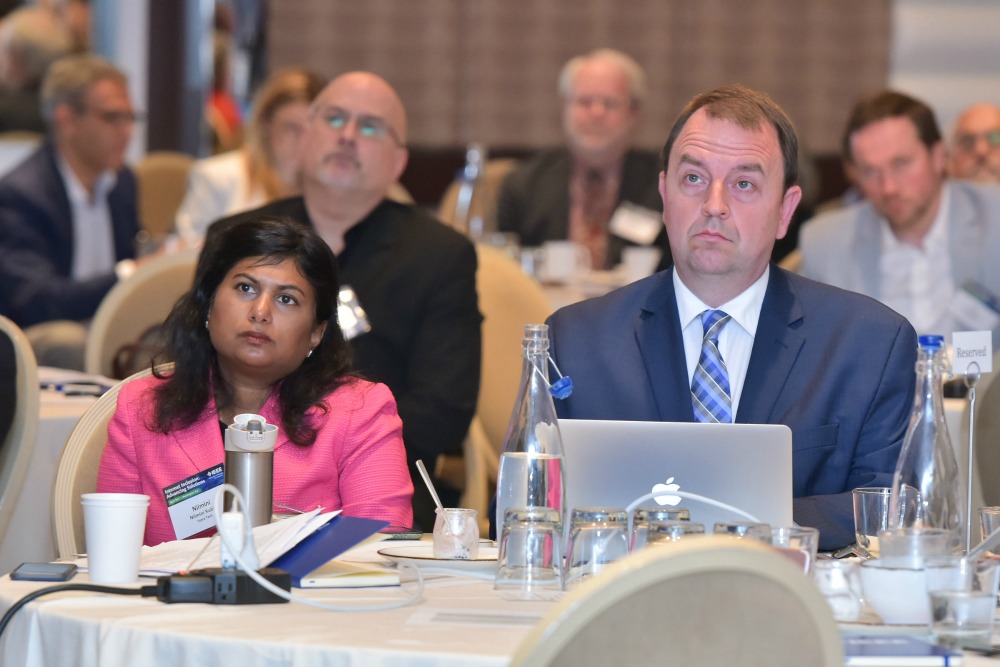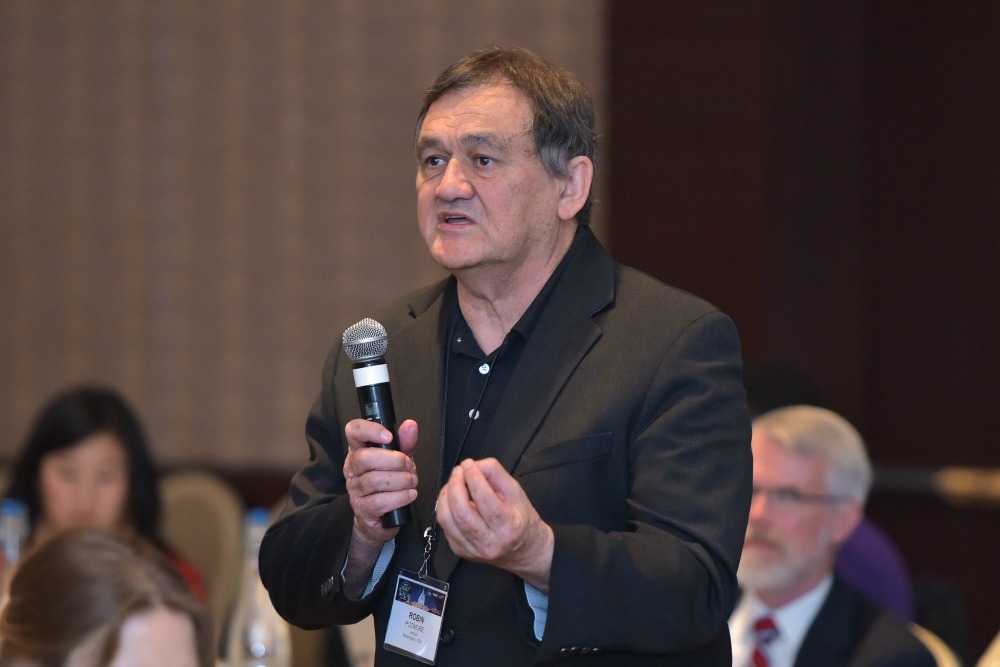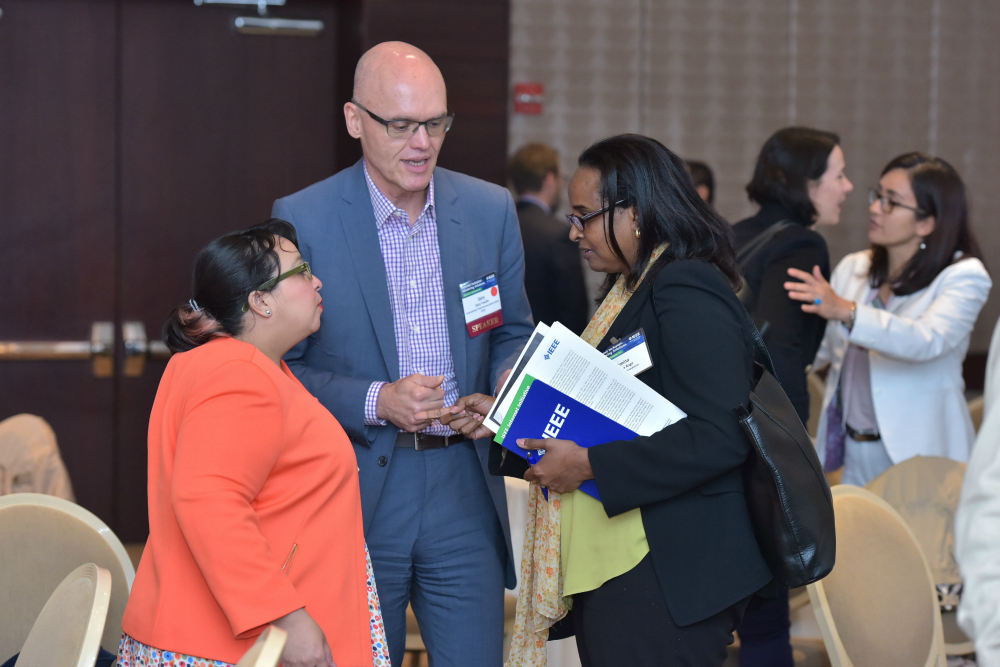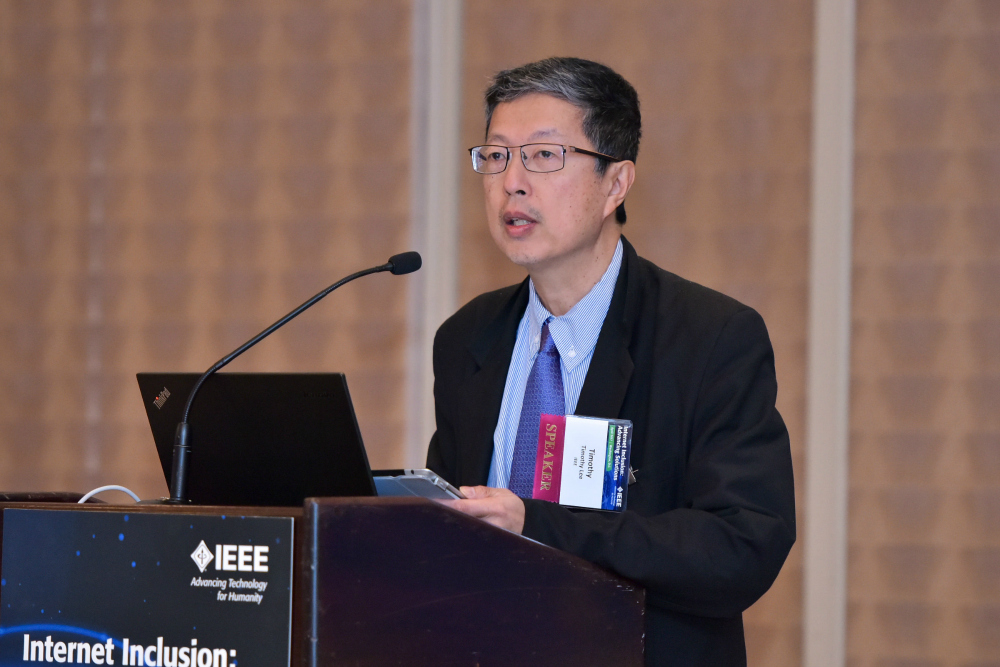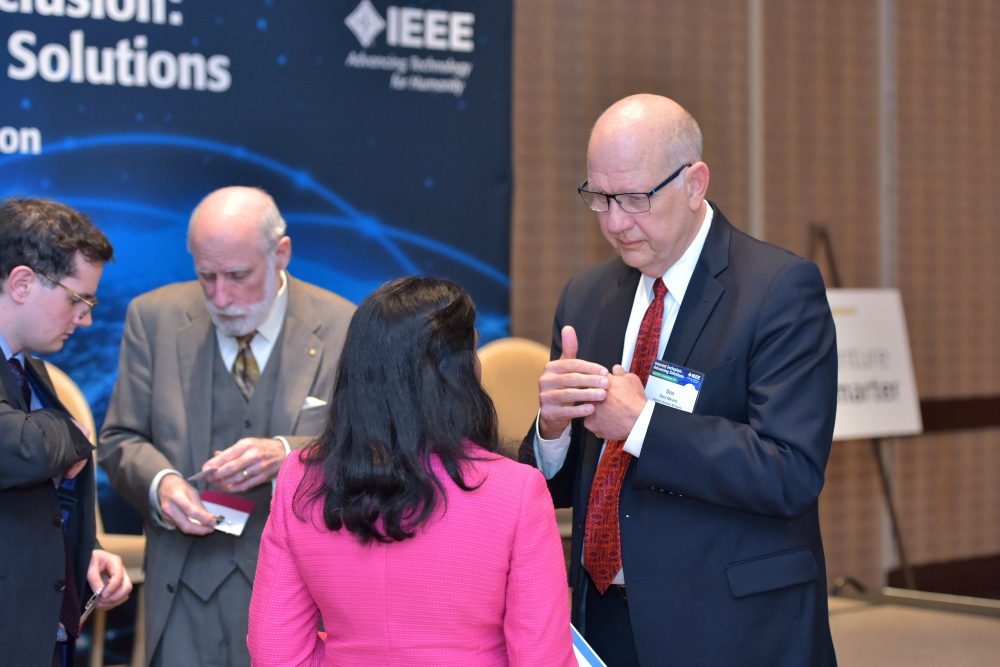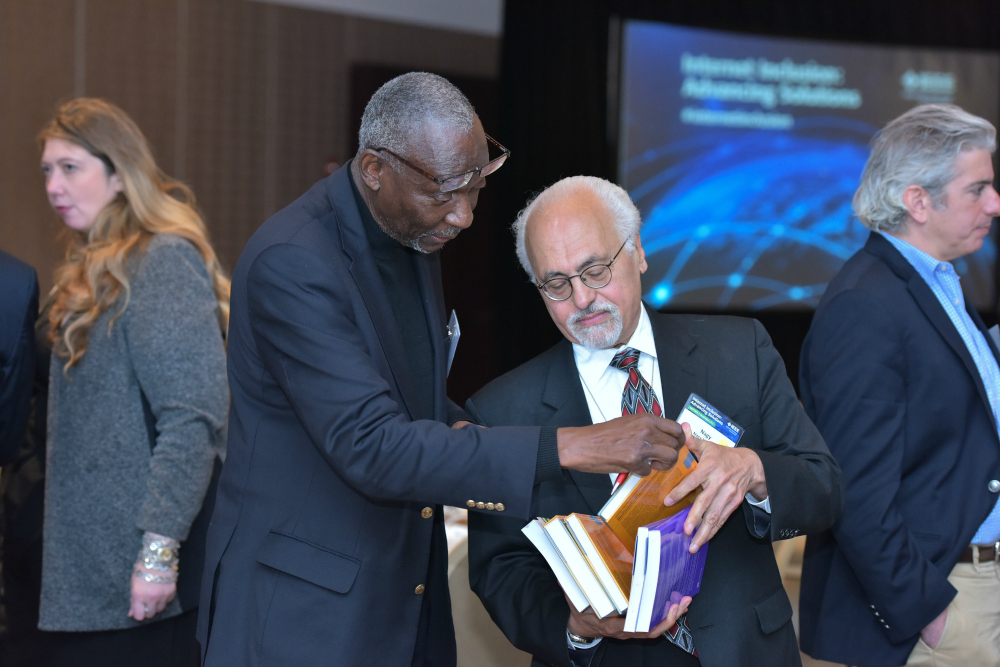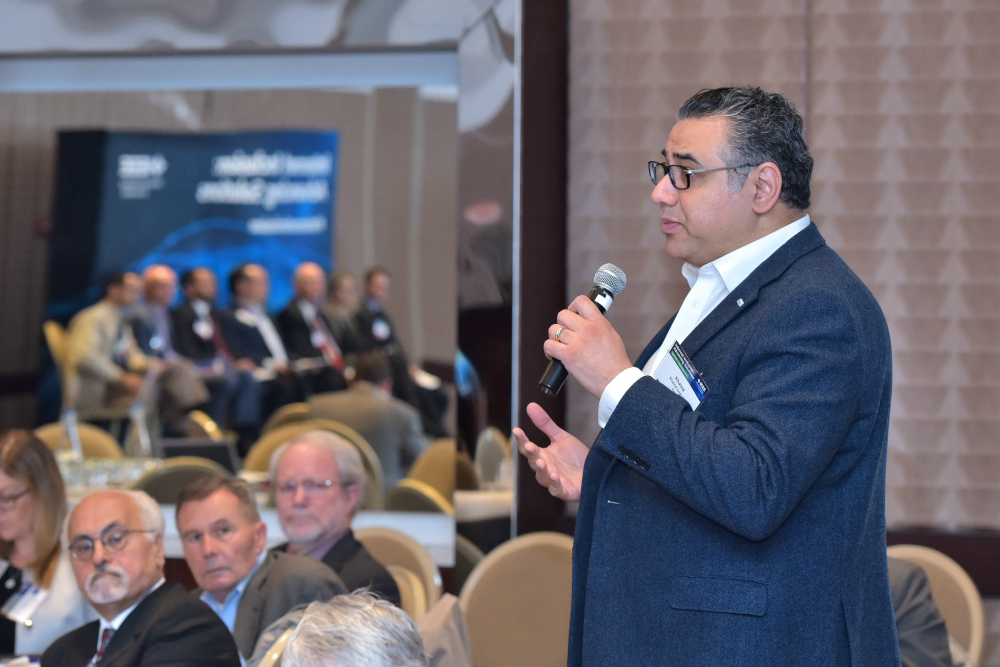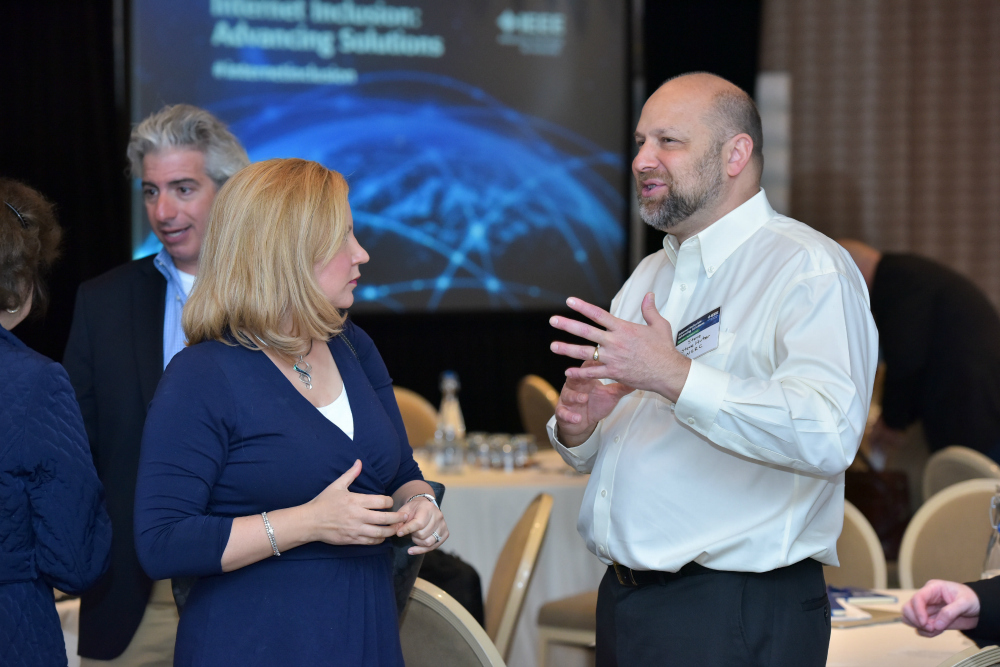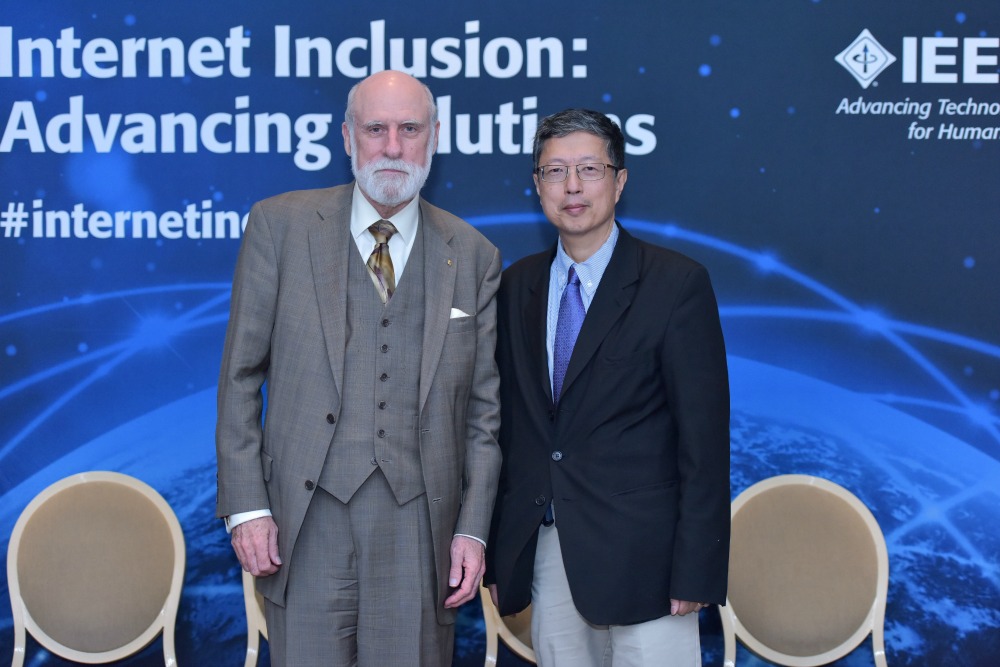Internet Inclusion: Advancing Solutions – 24-25 April, 2017
IEEE hosted Internet Inclusion: Advancing Solutions in Washington, D.C., at the Park Hyatt Washington during two days of events on 24 April and 25 April. IEEE's collaborating partners for the event included: Network Startup Resource Center, Guifi.net, Internet Society, ITU, 1 World Connected, Partnership for Public Access, People Centered Internet, USAID, World Bank Group, World Economic Forum and gold-level sponsor Venture Smarter.
Sessions were built on previous internet inclusion events organized by IEEE – as well as other programs dedicated to internet access, development and inclusion. These collaborative, multistakeholder events have outlined definitive opportunities to accelerate progress in meaningfully connecting the estimated 60 percent of the global population that remains unconnected around the world.
EVENT RESOURCES
25 April 2017 post-event report
Three minute recap of 25 April briefing
Recording of 25 April briefing
Presentations
- Steve Johanns, Founder and CEO of Veriown Global Holdings, The Advent of the Internet Energy Service Provider (iESP)
- Tim Lee, IEEE Internet Initiative Inclusion Program Chair, Internet Inclusion: Advancing Solutions Welcome – 24 April
- Tim Lee, IEEE Internet Initiative Inclusion Program Chair, Internet Inclusion: Advancing Solutions Welcome – 25 April
- Peter Micek, General Counsel, Access Now, Connecting human rights & development: Principled Advocacy Support & Convenings
- Nilmini Rubin, Vice President Tetra Tech, Energy & Internet
- Frank Schott, Vice President of Global Programs, NetHope, Committed to Improving The Human Condition
Internet Inclusion: Advancing Solutions Twitter moment
For more information contact Victoria Kuperman-Super.
RELATED MEDIA COVERAGE
From Concept to Concrete Action: Tune In to the Internet Inclusion Live Stream | The Institute
5 April 2017 – The IEEE Internet Initiative is hosting a workshop and briefing session on 24 and 25 April to discuss accelerating strategies for connecting the estimated 60 percent of the world’s population that remains unconnected to the Net…
How to get 4 billion unconnected people online by Rob Pegoraro | Yahoo! Finance
29 April 2017 – Yahoo! Finance explains participants’ viewpoints shared during IEEE’s recent Internet Inclusion: Advancing Solutions event. A lineup of speakers at IEEE’s “Internet Inclusion: Advancing Solutions” conference in Washington explained dealing with the global internet access shortage won’t be a quick fix and outlined what’s needed to address the issue...
2 May 2017 – Alliance for Affordable Internet (A4AI) guest blog post by Tetra Tech’s Nilmini Rubin shares insights from IEEE’s Internet Inclusion: Advancing Solutions event on creating internet and energy solutions...
Monday, 24 April, Working Group Sessions
In prior Internet Inclusion: Advancing Solutions events, technical, financial and policy options and solutions for addressing infrastructure challenges and extending affordable and meaningful internet access in underdeveloped and underserved communities and regions worldwide were explored by representatives from governments, multilateral development banks (MDBs) and other funders, industry, the technical community, non-governmental organizations, and civil-society organizations.
From those discussions, working groups formed and a roadmap emerged of next steps – along with commitments to actions toward making progress in extending affordable and meaningful internet access. This event provided an opportunity for working groups to progress their work, to engage with new participants as they shared information and collaborated, and identified possible gaps and determined solutions to fill those gaps that strengthened their respective and collective efforts.
Please see Internet Inclusion Working Group descriptions.
Tuesday, 25 April, Breakfast Briefing: 9-11:45 a.m. (registration/breakfast from 8-9 a.m.)
Policy and impact leaders, and all interested stakeholders were invited to join a breakfast briefing with experts who were spearheading the working groups on internet inclusion issues. Please see select presenter bios, which included IEEE Fellow Vint Cerf, internet hall-of-famer and founding father and People Centered Internet founder. Stakeholders, media and the public were encouraged to attend this moderated panel discussion, featuring lightning-talk overviews of progress and plans in the context of the internet inclusion challenges and opportunities addressed on 24 April by working groups in the following areas:
INTERNET INCLUSION WORKING GROUPS
Public Access Working Group
This working group’s mission is universal internet inclusion through public access (PA), dedicated to the proposition that any realistic strategy to meaningfully connect and enable the next billion(s) must have a PA component. Connecting libraries and other PA facilities is the most economical and equitable way to reach the greatest number of people, with potential to add value as training and support for digital literacy.
Innovative Business Models Working Group
The purpose of this working group is to surface and share last-mile connectivity solutions, identify barriers to greater investment and expansion of such solutions, and coalesce around specific activities that can lead to greater scale and impact of innovative models. With 3.9 billion people still not connected to the internet, and with global adoption growth rates slowing, current estimates of universal internet adoption point to at least another 20 years before the UN Sustainable Development Goal #9c (universal and affordable internet adoption in Least Developed Countries) will be reached. Part of the challenge is the high capex and opex cost structures of traditional operator deployment. However, various technology and business model innovations are extending network infrastructure and increasing affordability of voice and data connectivity. Challenges remain, however, for greater investment and experimentation of different access models that can scale and bring a significant number of unconnected communities online.
Digital Gender Divide Working Group
This working group focused on identifying approaches to build and optimally use programs and successfully scale activities. It served as an opportunity to take action and to bring awareness to connectivity, universal and affordable access, digital literacy and the cross-cutting catalytic role of ICT/ Broadband. Key questions for discussion included:
- How can different stakeholders work together to close the gender digital divide?
- What can governments do to support the development of ICTs skills in primary and secondary education?
- What are some of the challenges and opportunities regarding women and access, and what needs to be done to address these challenges?
- What are the key issues that should be prioritized by the private sector?
Evidence-based Research Working Group
The IEEE Working Group on Evidence-Based Research used the April IEEE meeting to bring together two distinct groups that are working on parallel issues and would benefit from engaging more with each other. On one hand is the technical community, which has promoted universal access to the internet as an end in itself instead of valuing it for its ability to improve social outcomes. On the other hand is the development community, which has expertise on how to measure progress in social outcomes, but has not paid much attention to the role that internet connectivity can play in improving those outcomes.
Allowing these two groups to interact with each other promises to allow the technical community to tap into the robust research tradition that measures the social impact of interventions for development in terms of health, education, agriculture, and gender empowerment. Better outcome metrics will better target ICT4D efforts to maximize their benefits.
Community Networks Working Group
Community Networks (CNs) are acknowledged drivers for a truly empowering internet inclusion, as they imply the involvement of the communities in the design, construction, maintenance and operation of their own telecommunications infrastructure. Fostering their adoption poses an excellent opportunity for contributing to connect the next billion(s). This working group, with startup participation by IEEE, the Internet Society, IGF-DC3 and Netcomons, focused on identifying and addressing the key challenges for this adoption and welcomed participants with all kinds of skills and expertise to guarantee fruitful discussions and outcomes from the April event and beyond.
Digital Literacy Working Group
The Digital Literacy Working Group considers the role of the libraries as hubs for digital literacy for individuals and for building resilience in communities to improve safety and security through education and learning. The working group is interested in gaining input on the aspects of digital literacy which can expand opportunities, reduce risks, overcome obstacles and address challenges faced by other working groups.
|
Lead organizer: |
Gold Sponsor: |
|||



